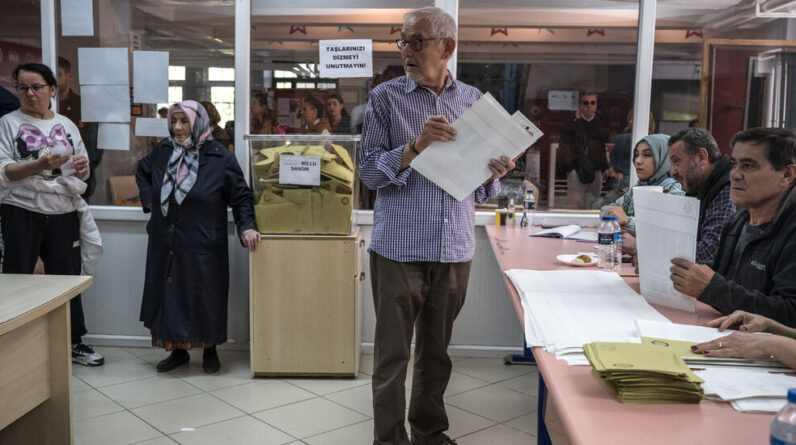
In December 2002 at the White House, President George W. Bush greeted an up-and-coming politician from Turkey whose newly formed party had just won a stunning majority in parliament.
“Welcome to the home of one of your country’s best friends and allies,” Bush told politician Recep Tayyip Erdogan. “You are a strategic ally and friend of the United States.”
Two months later, Erdogan became prime minister, elevating him to the head of Turkey’s political system and beginning his two-decade tenure as the country’s most powerful figure.
Sunday’s election in Turkey is in many ways a referendum on the dramatic changes Mr. Erdogan has contributed in 11 years as prime minister and nine as president. Once a new political force that promised to clean up corruption, expand the economy and strengthen ties with the West, he is now a near-all-powerful leader, blamed for Turkey’s currency collapse and criticized for undermining democracy.
Mr. Erdogan, 69, grew up poor in a rough neighborhood of Istanbul, Turkey’s largest city, where his father was a ferry captain. He studied at Islamic schools normally intended for future clerics, but turned to politics and won a four-year term as mayor of Istanbul in 1994. Residents credited him with cleaning up the old, messy metropolis.
In 1997, he was removed from office and sentenced to 10 months in prison for inciting violence after reciting an Islamist poem at a demonstration. He ended up serving just four months, but received a longer ban from politics.
When his Justice and Development Party, which he helped found, won an unexpected parliamentary majority in 2002, it was the strongest showing yet of an Islamist political group in Turkey’s staunchly secular political system. . The following year, the political ban of Mr. Erdogan finished and became prime minister.
For about a decade, he and his party delivered on their promises of good governance and economic growth. Turkey’s gross domestic product more than tripled, lifting millions of people out of poverty, and new airports, hospitals, roads and bridges sprung up across the country.
Internationally, Erdogan was hailed as a pro-business Islamist and democrat who could serve as a bridge between the West and the Muslim world.
But challenges arose. In 2013, protests against a construction project that Erdogan had supported on the site of an Istanbul park turned into mass anti-government demonstrations. Fearing instability, some foreign investors began to withdraw their capital.
Anti-government protesters chanted slogans during a clash with police in Istanbul in 2013.Credit…Ed Ou for The New York Times
In 2016, two years after becoming president, Mr. Erdogan survived a coup attempt that included a failed effort to kidnap him from a spa resort. He responded by further centralizing power and sidelining critics: purging tens of thousands from the judiciary and state bureaucracy and replacing many of them with loyalists, curtailing civil liberties and increasing his influence over the media.
In 2017, he pushed through a constitutional referendum that ended Turkey’s parliamentary system and transferred much of the state’s power to the president, meaning him.
Throughout, he and his party remained formidable at the polls and used their electoral mandate to promote a religiously conservative vision. Mr. Erdogan expanded Islamic education and loosened regulations aimed at ensuring a secular state, including lifting a ban on headscarves for women in government jobs.
Many of his voters, who tended to be rural, devout and working-class, saw him as their champion against a secular elite who despised them.
But the honeymoon of Mr. Erdogan with the West, especially the United States, did not last. He accused Washington of complicity in the coup attempt because the clergyman he accused of masterminding the plot lives in Pennsylvania, a charge the clergyman denies.
After Mr. Bush, Presidents Obama and Trump welcomed Mr. Erdogan in the White House, but President Biden has not. And on Saturday, the final day of the campaign, Mr Erdogan accused Mr Biden of working with Turkey’s political opposition to oust him.
[ad_2]
Source link





